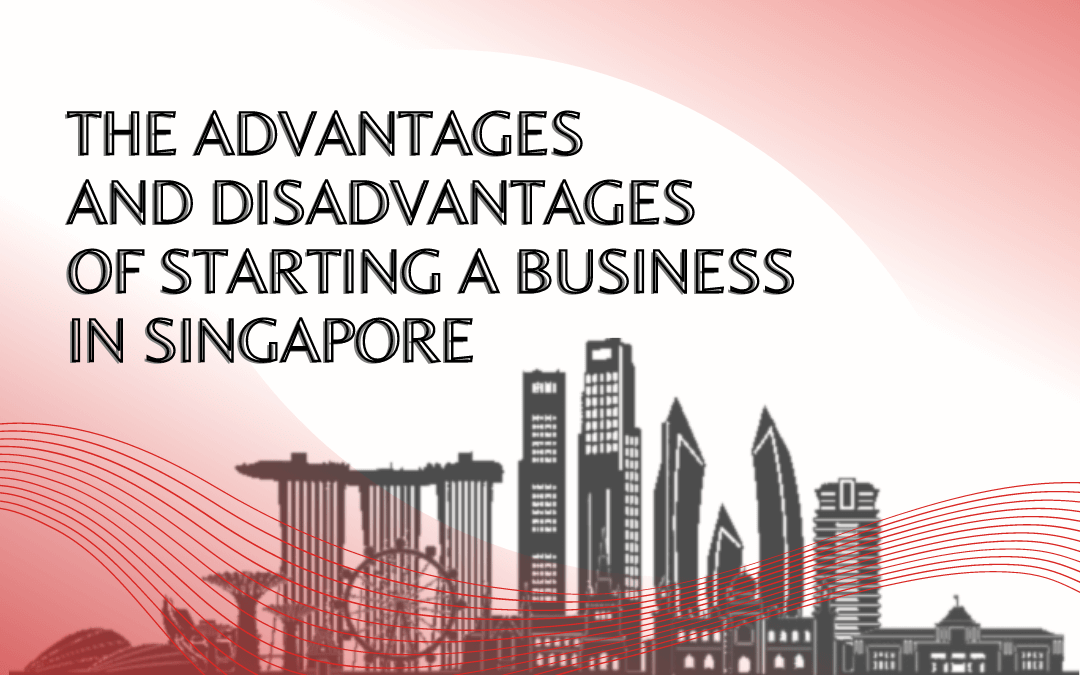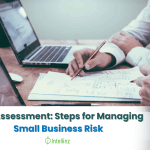The Advantages and Disadvantages of Starting a Business in Singapore.
Singapore is one of the most attractive places for setting up a business for both foreigners and locals alike. This small island nation of immigrants has had some of the most brilliant economic development over the decades and has been praised by international forums throughout the world for its approach and successes in business becoming the number one destination for company incorporation in Singapore. Singapore is ranked 2nd in the World Bank’s 2020 ease of business report after a 7 year consecutive dominance of the 1st spot which ended in 2017. Other accolades include second in global finance’s list of most richest countries in the world, 3rd least corrupt in the Corruption Perceptions Index and having one of the most robust and efficient infrastructure in the world. Taking all the facts into account, today I’d like to examine the advantages and disadvantages setting up a business in Singapore so that you can decide whether you want your company to be incorporated in Singapore or not.
Advantages of Setting up a Business in Singapore
Ease of Setting up Business
Company incorporation in Singapore can be initiated online and can take only 1-3 working days. Company incorporation is open for all individuals over 18, be they foreigners or locals, as long as they can procure the funds and have the necessary training, specialization and/or degree. Furthermore, the investment environment of Singapore means that there are multiple governmental and private investment schemes for aspiring entrepreneurs, startups and other companies of different development levels. These schemes are iStart-ACE Scheme, IE Singapore, SPRING, IDA and others. All these investment schemes cater in some way or another to companies, though their interests may differ. For example IE Singapore offers assistance for research or overseas expansion whereas SPRING offers grants for aspiring entrepreneurs hoping to start their businesses.
Economic and Political stability
Even freshmen econ students know that stability nurtures economic activities. Nowhere is this truer than in Singapore, with its active business environment, political stability- especially attractive in a world which is getting increasingly polarized and volatile-, low corruption and staunch adherence to government regulations. Singapore has an active incentive to keep its reputation clean and unbiased. The name of Singapore attracts foreigners, foreign investments and foreign millionaires looking for a tax haven. As people consider Singapore a tax haven and stable country to live in- and invest in the country with these things in mind- the only way for Singapore to continue to operate as a tax haven and gain foreign investment is by maintaining strict regulations and legal proceedings to showcase itself as a fair and just country. That is good for you as this means that Singapore’s laws will make sure you’re not unduly harmed and all contracts made will be enforced regardless of the relative power of the participants.
Tax Exemptions and Corporate Taxes
Corporate tax rate in Singapore is a relatively low 17% when you consider the massive utilities you are gaining; the protection of the law, a robust infrastructure, entry into the Association of Southeast Asian Nation (ASEAN). Tax deductions and exemptions are aplenty with a certain percentage of tax exemption given to the first $200,000 income and no tax on capital gains and dividend income among other things. Moreover, the Singaporean authorities have an extensive network of Double Tax agreements (DTAs) with over 80 nations to make sure corporations are not double taxed.
Strategic Geographical Location
Singapore exists as the main trade hub for most of central Asia. It also exists in the crossroads of two massive Asian economies, India and China and has multiple trade routes and massive amounts of good, services and labor travels through these trade routes. Its position in Central Asia allows any startup direct trade to multiple massive markets, encouraging company incorporation.
Disadvantages of Setting up a Business in Singapore
The Raging Pandemic
The pandemic continues to rage on throughout the world, though Singapore has thankfully (mostly) able to stave off the worst of the effects. Starting a business during the pandemic may have some advantages (low interest rates, lack of competition etc) though one thing is undeniable; it’s an extremely risky proposition. The pandemic has shaken the entire world, stifling demand and investment for most ventures. Certain industries have been more negatively affected than others and you need to keep it into account when considering whether to start a specific kind of business or not.
Extremely Competitive Labor market
Singapore like most developed nations incentivizes immigration of highly skilled labor and tries to reduce immigration of low skilled labor. Therefore, the labor market is strife with competition with highly skilled labor already expensive enough to hire with the added problem of there being a shortage of low skilled labor for basic jobs driving up the worker prices. Singapore is not like China or India in the regard it doesn’t have the population to facilitate economic growth with cheap abundant workers. This means that the new businesses have to face the problems involved in first searching and then paying for workers in a highly competitive market.
High Costs of Operation
Singapore is one of the most expensive countries in the world; therefore, it should come as no surprise that startups and companies face extremely high operational costs in Singapore. Land is on a premium driving up rental prices for startups and the powerful currency makes everything from labor to raw materials expensive. All the massive advantages come with a high price tag that any start up in Singapore will have a






